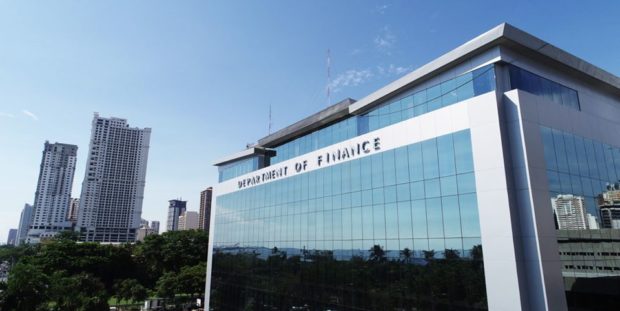
MANILA, Philippines—Lifestyle checks conducted among 468 employees working in agencies being overseen by the c(DOF)—including the country’s two biggest tax-collecting offices—resulted in 77 personnel getting reprimanded for alleged corruption.
Citing the latest report of its anti-corruption arm, Revenue Integrity Protection Service (RIPS), the DOF said in a statement on Tuesday (April 12) that from July 2016 to February 2022, 58 cases against erring workers had been filed at the Office of the Ombudsman, the Civil Service Commission (CSC), and other quasi-judicial bodies.
The DOF’s RIPS, being supervised by Finance Undersecretary Bayani Agabin, investigated employees of the DOF central office, the Bureau of Customs (BOC), Bureau of Internal Revenue (BIR), Bureau of Local Government Finance (BLGF) and Bureau of the Treasury (BTr) plus the Insurance Commission (IC).
“Over half or 55 percent of the 468 employees investigated were from the BOC, while over a third or 38 percent were from the BIR,” said Ray Gilberto Espinosa, RIPS executive director, in a recent report to Finance Secretary Carlos Dominguez III.
No less than President Rodrigo Duterte had tagged the BIR and the BOC, which collected bulk of the government’s tax revenues, as “corrupt” agencies.
The RIPS’ investigations led to 16 employees being dismissed from service, on top of 10 who had been found guilty in criminal cases, Espinosa was quoted by the DOF as saying.
“Another 35 employees were suspended, nine were reprimanded and seven were ordered to pay fines as penalties for the charges for which they were held liable,” Espinosa said.
Last year, the DOF launched a dedicated page (https://www.dof.gov.ph/report-corruption) on its official website, enjoining citizens to report cases of possible anomalies not only in the department but also in all of the agencies it supervises.
Dominguez also last year disclosed that the department was going after private lobbyists who wield influence over government decision-making to push their own interests to the detriment of public good, or what is called “state capture.”
“Capturers of the state operate discreetly, in order to lull the ordinary Filipino into thinking that whatever project they are pushing for will ultimately redound to the benefit of the public,” said Dominguez.
“These capturers are enterprising private individuals who use every resource at their disposal, including the media and political figures. They employ a carrot-and-stick approach to influence politicians,” he said.
“Those who willingly accept grease money are paid off while those who refuse are threatened with litigation,” said Dominguez last year.
“These grafters and influence peddlers play the long game nurturing a symbiotic relationship with public officers complicit with the capturers and bartering continued political support from powerful individuals. These are done in exchange for wielding government power for a period to last beyond one presidential term,” he said.
“In most instances, these private individuals infiltrate the government bureaucracy through their chosen appointees to regulatory bodies and implementing agencies. To solidify control over their respective private interests, these capturers position their alter egos in key agencies, leading to lopsided contracts and disadvantageous transactions all to the prejudice of the Filipino people,” Dominguez had said.
“We have extensively shared our knowledge on [state capture] with the regulators and the key government officials. This will help the government identify such manipulative schemes perpetuated by private individuals and stop them in their tracks,” according to Dominguez.
TSB

